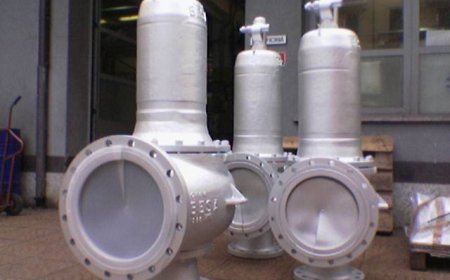Engine Lubricants: Everything You Need to Know
Engine lubricants play a vital role in the overall performance, efficiency, and longevity of vehicles. Whether you drive a car, operate heavy machinery, or manage a fleet of trucks, choosing the right engine lubricants is essential to ensure smooth engine function and prevent wear and tear. In this blog, we will explore what engine lubricants are, their types, benefits, and tips for selecting the right one for your vehicle.

Engine lubricants play a vital role in the overall performance, efficiency, and longevity of vehicles. Whether you drive a car, operate heavy machinery, or manage a fleet of trucks, choosing the right engine lubricants is essential to ensure smooth engine function and prevent wear and tear. In this blog, we will explore what engine lubricants are, their types, benefits, and tips for selecting the right one for your vehicle.
What Are Engine Lubricants?
Engine lubricants are fluids specifically designed to reduce friction between the moving parts inside an engine. These lubricants form a protective layer that helps parts glide smoothly against each other, preventing direct metal-to-metal contact. In addition to minimizing friction, engine lubricants also help in cooling the engine, cleaning internal parts, sealing small gaps, and preventing corrosion.
Types of Engine Lubricants
There are several types of engine lubricants available in the market. Each type has distinct characteristics and is suitable for specific engine needs. Below are the main categories:
1. Mineral Oil-Based Lubricants
These are derived from refined crude oil and are generally more affordable. They are best suited for older engines or low-stress applications. However, mineral oils may require more frequent changes compared to synthetic variants.
2. Synthetic Lubricants
Synthetic engine lubricants are chemically engineered to provide high performance under a wide range of temperatures. They offer excellent protection against engine wear, better fuel economy, and extended drain intervals. They are ideal for modern, high-performance engines.
3. Semi-Synthetic Lubricants
Also known as synthetic blends, these lubricants combine mineral and synthetic oils to offer a balance between performance and affordability. They are suitable for drivers who want better protection than mineral oil but at a lower cost than full synthetic options.
4. Bio-Based Lubricants
These are environmentally friendly lubricants derived from renewable sources such as vegetable oils. While not yet mainstream, they are gaining popularity in sustainable automotive practices.
Functions of Engine Lubricants
Engine lubricants serve multiple purposes beyond just reducing friction. Some of their key functions include:
Cooling the Engine
Lubricants carry heat away from engine components, preventing overheating and maintaining optimal operating temperatures.
Cleaning Internal Engine Parts
Modern engine lubricants contain detergents and dispersants that prevent sludge and carbon buildup, keeping the engine clean and efficient.
Sealing Small Gaps
Lubricants help in sealing microscopic gaps between piston rings and cylinder walls, ensuring better compression and improved engine efficiency.
Corrosion Protection
By forming a protective layer, lubricants guard engine components against moisture and oxidation, thereby preventing rust and corrosion.
Why Choosing the Right Engine Lubricant Matters
Using the correct engine lubricant tailored to your vehicles requirements is critical for several reasons:
-
Enhanced Engine Life: Proper lubrication reduces wear and prolongs engine life.
-
Improved Fuel Economy: The right lubricant minimizes resistance, allowing the engine to run more efficiently.
-
Reduced Emissions: Clean-burning engines produce fewer pollutants, contributing to environmental protection.
-
Fewer Repairs: Well-lubricated engines are less prone to breakdowns and mechanical failures.
How to Choose the Right Engine Lubricant
Selecting the appropriate engine lubricant involves considering various factors:
1. Viscosity Grade
This refers to the thickness of the lubricant. Common grades include 5W-30, 10W-40, etc. Always refer to your vehicle manufacturers recommendation for the suitable viscosity.
2. Driving Conditions
High-temperature environments or stop-and-go traffic may require synthetic lubricants with better heat resistance and stability.
3. Engine Age and Type
Older engines may perform better with high-viscosity mineral oils, while newer engines benefit from synthetic options designed for high efficiency and cleanliness.
4. Manufacturer Standards
Look for lubricants that meet or exceed industry standards such as API (American Petroleum Institute) or ACEA (European Automobile Manufacturers Association) certifications.
When to Change Engine Lubricants
Regular oil changes are crucial for maintaining engine performance. The frequency depends on the type of lubricant used and your driving habits. While mineral oils may need to be changed every 5,000 kilometers, synthetic lubricants can last up to 10,00015,000 kilometers.
Always check your vehicles owner manual for specific recommendations and keep an eye on indicators such as engine noise, dark oil color, or dashboard alerts signaling an oil change.
Eco-Friendly Practices in Engine Lubricants
As environmental concerns rise, many manufacturers are innovating with biodegradable and low-toxicity engine lubricants. These alternatives reduce the ecological footprint while maintaining performance. Proper disposal and recycling of used engine oil also play a significant role in protecting the environment. Many automotive businesses prefer sourcing from engine oil wholesale suppliers to reduce costs and ensure a steady supply of high-quality products.
Conclusion
Engine lubricants are more than just fluids they are essential for the smooth, efficient, and long-lasting operation of any vehicle. Understanding the types, functions, and importance of selecting the right lubricant can help you extend your engines life, improve fuel efficiency, and reduce maintenance costs. Always follow manufacturer guidelines and consult a professional if you're unsure which engine lubricant best suits your vehicle.








































